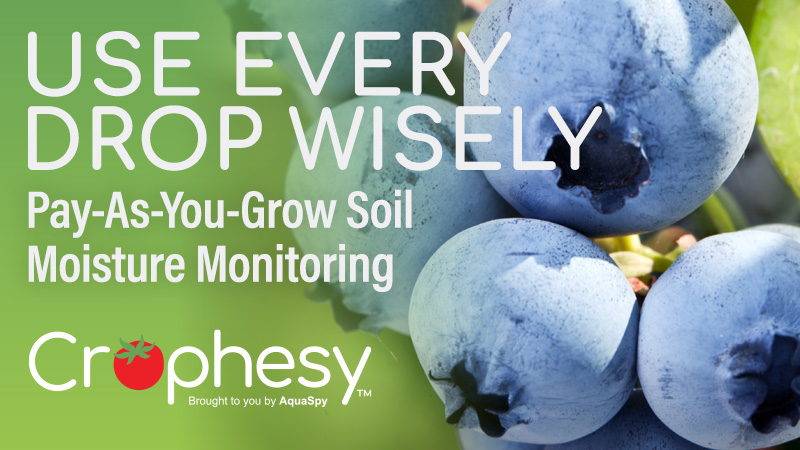Help Wanted: Agricultural Employers Are Hiring
It is a hungry world, making demand for talented young people to fill important agricultural jobs and leadership positions more important than ever. Across the board, the industry will need more growers, scientists, advocates, and allied industry ready to step up and serve.
But, how well positioned is the agricultural industry to fill these future employment needs? According to the 2014-2105 AgCareers.com HR Review, ag employers are gearing to fill those positions. Over the next two years, 68.18% of surveyed ag employers reported they expect their workforce to increase. These companies (62.73%) plan to do more recruiting from colleges and universities in the next one to five years. Most of these companies say recruiting is important because of competition of talent (60.29%).
Opportunities should be plentiful for agricultural employment and future GenNexters, but competition will be stiff. Young people hoping to join the challenge of feeding the world will need to take steps to stand out in the future.
Be Proactive
Ashley Collins, education and marketing manager for AgCareers.com, says student internships are a good way to prepare and stand out for hopeful ag employees.
“We encourage students to complete as many internships as possible to help them network with employers and companies while enhancing the technical skills they learn in the classroom,” Collins says. “In 2014, there were nearly 1,500 internships posted on our website, and according to the AgCareers.com Intern & New Grad Report, employers retain one in three of their interns into full-time roles within their company.
“Additionally, employers report that a student’s unwillingness to relocate for a career is the second biggest challenge they face when recruiting young talent. Internships are a great way for students to explore relocation for a short amount of time to see if they would be more willing to relocate for a career opportunity.”
Think Big
Collins adds agricultural employers are seeking people who think big and appreciate the importance of the job of growing food and fiber.
“Employability skills such as being globally conscious, a strong work ethic (get up early and stay late), being a lifelong learner, and strategic thinking are very important,” she says. “These are skills students learn when they apply their technical knowledge in internships, group projects, by being active in clubs and organizations on campus, and other work experiences they have.”
All of these activities provide opportunities to network, which Collins says remains the No. 1 way people find careers. But, the process has become more social and mobile than in the past. Nearly 60% of surveyed ag companies report they now use social networks in their recruitment efforts.
“Young people today use social media sites such as LinkedIn to cultivate their professional network and more and more mobile friendly sites and apps to find out about job opportunities and explore employer brands,” she says.
♦ GenNext Grower has advice on preparing for the working world ♦
Make Every Minute Count
Marshal Sewell recently joined the job ranks of the ag workforce after graduating from the University of Florida in 2012 with a degree in food and resource economics. He exemplifies many of the suggestions offered by Ashley Collins. He is working with Monsanto/Seminis as a territory sales representative for Central and North Florida and is a recent graduate of the FFVA’s Emerging Leader Development Program. Here is his advice on preparing for the working world.

Marshall Sewell
When you began college, did you have a good idea you wanted to pursue a career in agriculture?
Sewell: After being born into a farming family in Plant City, I knew from a very early age that agriculture was the field I wanted to study and pursue a career in long before I started college. As a fifth generation agriculturist, farming (and the produce industry, specifically) was more of a way of life than a career choice.
What skills did you learn in college that have been most useful in your job after school?
Sewell: Academically, the basic principles from my agricultural economics classes have proven to be useful — supply and demand, elasticity of markets and goods, etc. My marketing classes also have been helpful in developing strategic plans for general sales and product launches.
Practically, the networking experience gained from college helped prepare me for a career beyond school. Meeting and mingling with people from a broad set of backgrounds and interests helps you get ready to look for and take a role in a very diverse workplace.
What advice would you give students who are nearing graduation to help them stand out to agricultural employers?
Sewell: The best advice I can give is to diversify your résumé. In many scenarios, this is the first means that a company or potential recruiter has to learn about you and it will be a large contributor to whether or not you get a telephone call or face-to-face meeting. Academic performance is certainly something to take seriously, but your résumé also should incorporate some other areas of personal development; extracurricular activities (clubs, teams, student government) along with internships are some of the best ways to broaden your college experience and contribute to your résumé.
How important were extracurricular activities to landing a job after school?
Sewell: My involvement extracurricular activities within high school and college were very important to finding a job after college. Throughout high school, I stayed very involved with the FFA to secure a position as a State FFA Officer for Florida. Once in college, I became active in Alpha Gamma Rho (the agricultural fraternity), the National AgriMarketing Association’s Collegiate Chapter at UF, and other organizations like the Collegiate Farm Bureau. All of these allowed me the opportunity to continue developing personal skills necessary for a future career while also contributing to the growth of my network within the industry.
During the interview process, did anything jump out at you that the companies were particularly interested in terms of your skill sets, etc.?
Sewell: In my personal experience, I have seen companies show a great deal of interest in practical work experience. Once again, academics are extremely important. But companies often are curious as to what skill sets you have developed and how you have performed in internship and job opportunities. These experiences are where you use the lessons you receive from the classroom and apply them in the workplace. Recruiters want to know just how well you can make that connection in a real life scenario.
Are you glad you are involved in a job related to agriculture?
Sewell: Absolutely. Set aside agriculture as a part of my personal background and heritage, it is still a dynamic and evolving industry. Our population is growing, and we will always need a safe and abundant food supply. It is exciting, challenging, rewarding, and so many other adjectives, to work in a field that is so essential to the sustainability of our world. It is an industry full of opportunity and I look forward to carrying on the family tradition of working in it.









